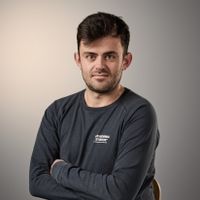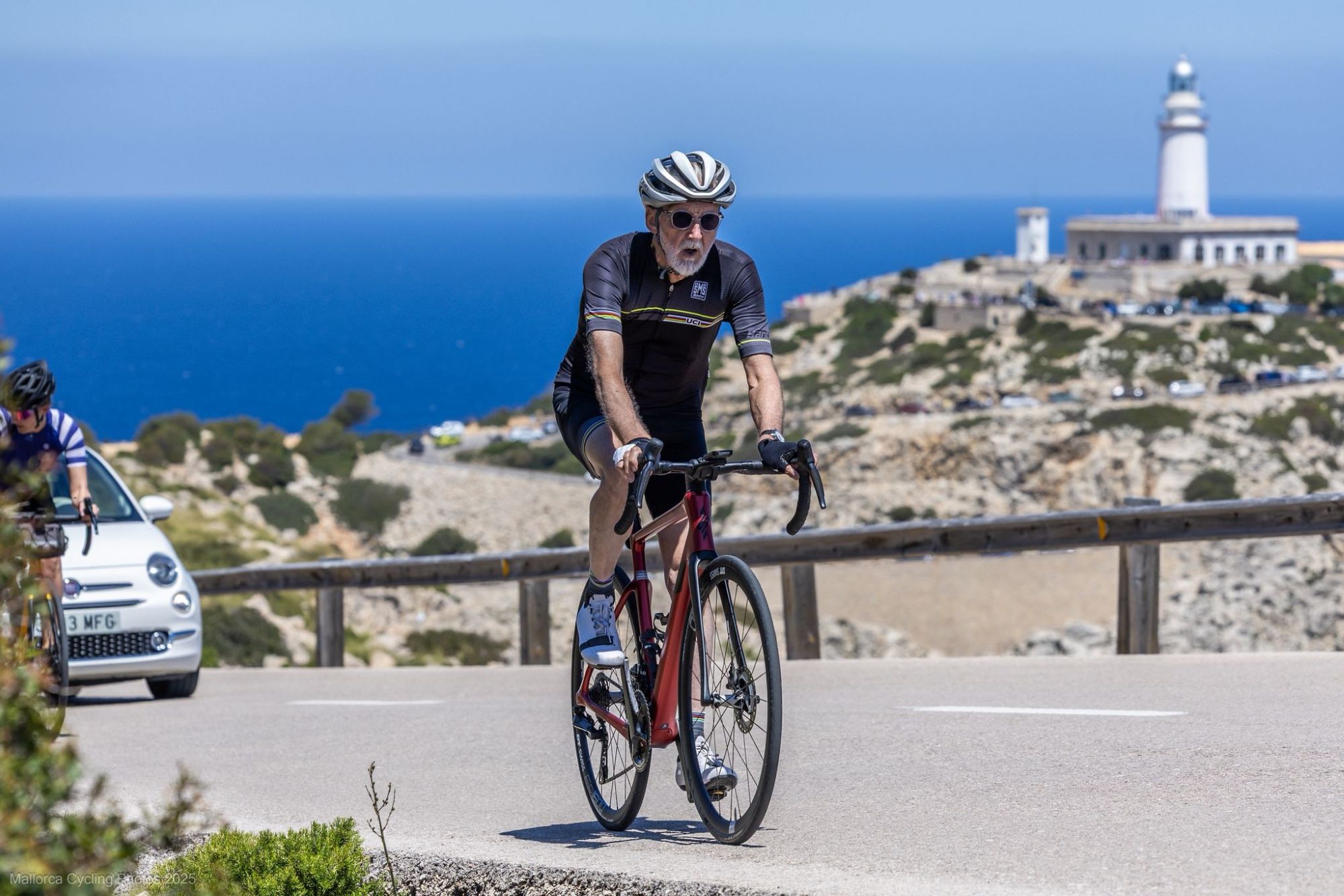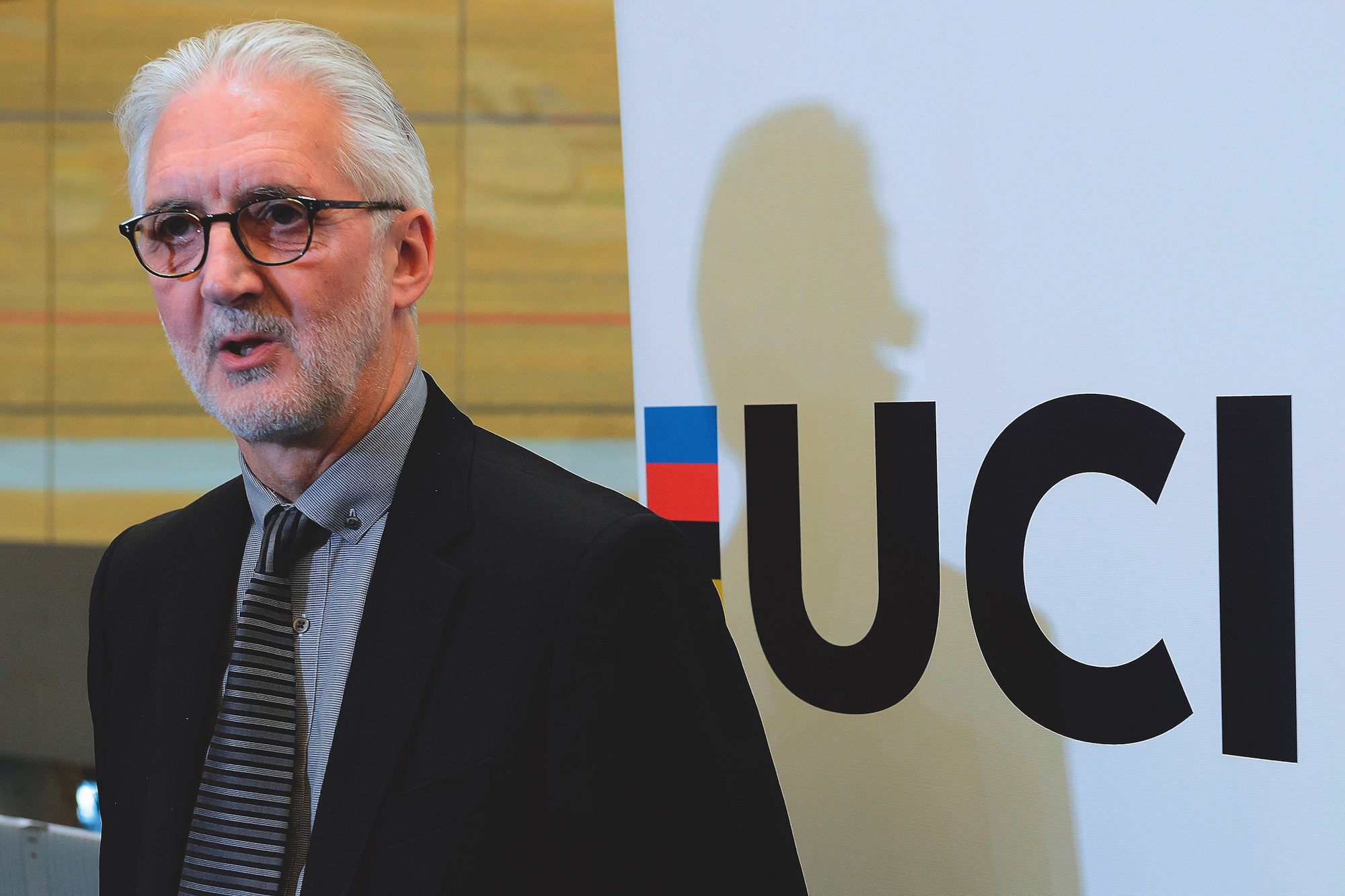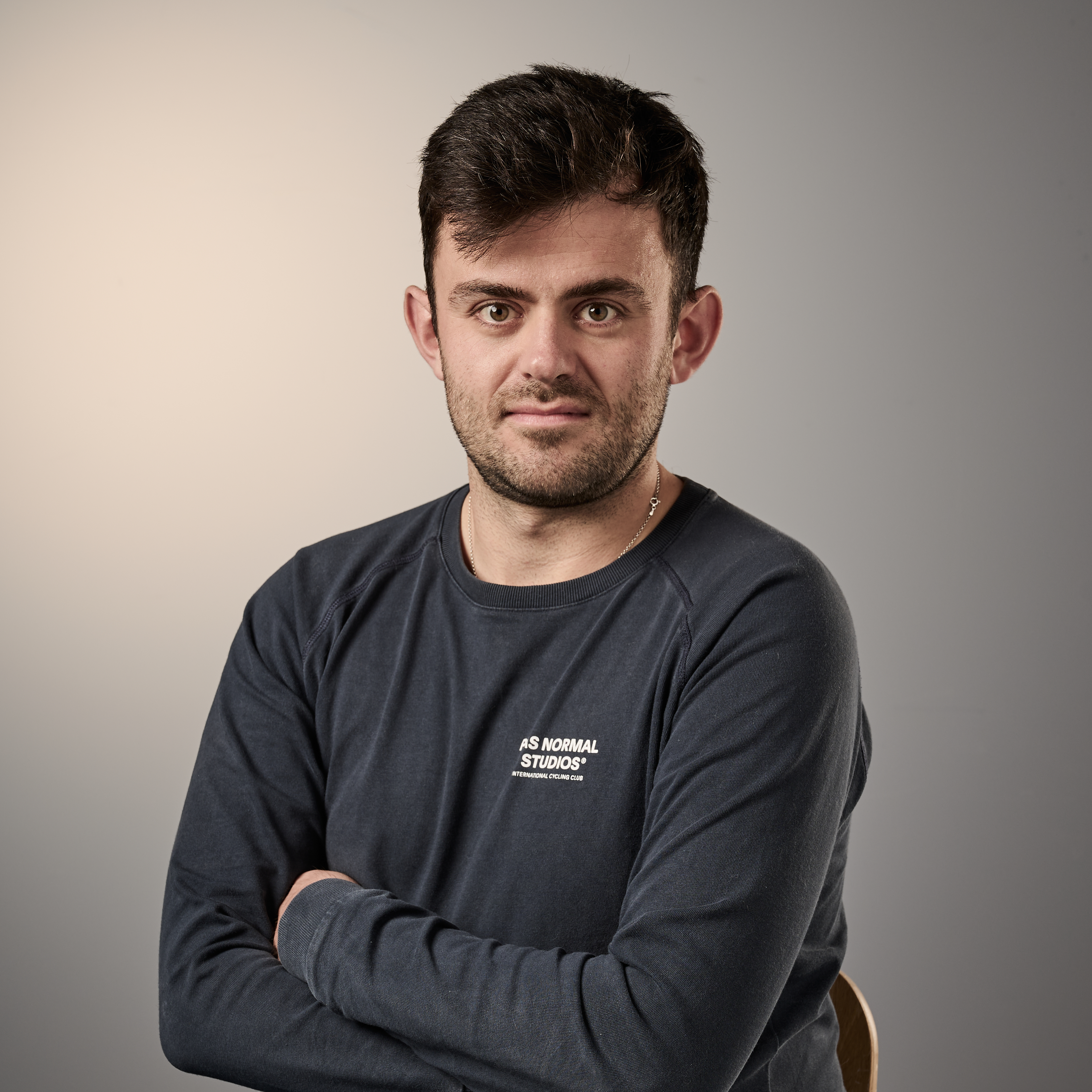Former UCI President says British Heart Foundation study 'might well have saved my life'
Brian Cookson experienced an 'unusual episode' while training last year which was later diagnosed as Ventricular Tachycardia


The latest race content, interviews, features, reviews and expert buying guides, direct to your inbox!
You are now subscribed
Your newsletter sign-up was successful
Brian Cookson, a former president of both the UCI and British Cycling, says participating in a recent study into heart scarring could have saved his life after he experienced an "unusual episode" while training at the Manchester Velodrome last year.
The 74-year-old has remained an avid cyclist since retiring and has regularly competed at a variety of events - including in the Gran Fondo World Championships.
Despite not previously experiencing any heart problems, Cookson signed up to a British Heart Foundation [BHF] medical study investigating the impact of heart scarring on veteran male athletes after he saw the investigation advertised on a masters cycling Facebook page.
After a series of tests at the University of Leeds, he was fitted with a small loop recorder "about the size of a computer memory stick" which, as Cookson explained, he was incredibly grateful for during a track session at the National Cycling Centre just a few months later.
"I started feeling quite unwell," he told Cycling Weekly. "I came off [the track] and my Garmin said 'congratulations - new maximum heart rate of 238 bpm.' I thought 'ok, that’s not good', so I flicked across the screen and it was still showing that same reading and not going down.
"I sat down and eventually lied down as the first aiders came out and asked if I wanted them to call an ambulance. After about ten minutes or so everything went back to normal but I went straight home and emailed the people running the study to tell them what had happened."
Cookson says that concerns grew when he was then contacted by the researchers the following morning: "I received a call to say don’t do anything more strenuous than walking - we need to get you in here to fit you with an ICD [implantable cardioverter defibrillator] which will prevent you having anything more serious - what you’ve experienced is called Ventricular Tachycardia."
The latest race content, interviews, features, reviews and expert buying guides, direct to your inbox!
The condition he experienced is when an abnormally fast heartbeat means that blood is not being efficiently pumped around the body by the ventricles which can, in some cases, result in cardiac arrest.
"I’d describe the ICD I now have as being like a smart pacemaker," Cookson explained. "It will intervene if your heart was to stop in the middle of the night, it will give you a shock and restart it if you have some minor irregularities in rhythm and give you a tiny readjustment. Or if you had a heart attack it would give you defibrillation and quite a big shock.
"This is all down to incredible research that the British Heart Foundation has funded over the years and I feel incredibly grateful to have been given the opportunity to participate in that and hopefully help other people."
"I'm so grateful to have been part of this study. It might well have saved my life," he added. "Without it, I might have carried on pushing myself until something more serious happened."

The study carried out by the BHF found that almost half of the 106 participants had scarring in their hearts which raised the chance of them having an episode similar to that experienced by Cookson. Nevertheless, Dr Peter Swobada - the medic who led the study - said that the results "shouldn’t put people off" exercise completely.
"We can all benefit from being more active," he said. "This study is an important step towards helping people take part in sport as safely as possible."
Moving forwards, Cookson says that he is now considering giving up racing completely as a result of his experiences but will keep riding for fun and to improve his general fitness.
"I won one national title and it took me 50 odd years, so that’s enough now. I’d rather just keep riding to stay fit and have another 10, 20 or even more years of life. Who knows? Maybe when I get to 100 I’ll go for the hour record to mark that," he joked.
"What I do now is back off a little bit if I notice my heart rate touching around 150," he explained. "I can’t push it over my limit on the track or things like that as if that’s going to lead to a problem then the simplest thing to do is to just back off. Even though I have my ICD now, you don’t really want to get into that scenario when you’re going to need it to go to work.
"Of course it’s a good thing to keep training, keep active and keep moving as much as you can, but just don’t assume that it’s making you immortal or immune to problems. If there is ever something that you’re not sure about then just get it looked at and checked out because there are things that can be done to help."

After previously working in higher education, Tom joined Cycling Weekly in 2022 and hasn't looked back. He's been covering professional cycling ever since; reporting on the ground from some of the sport's biggest races and events, including the Tour de France, Paris-Roubaix and the World Championships. His earliest memory of a bike race is watching the Tour on holiday in the early 2000's in the south of France - he even made it on to the podium in Pau afterwards. His favourite place that cycling has taken him is Montréal in Canada.
You must confirm your public display name before commenting
Please logout and then login again, you will then be prompted to enter your display name.